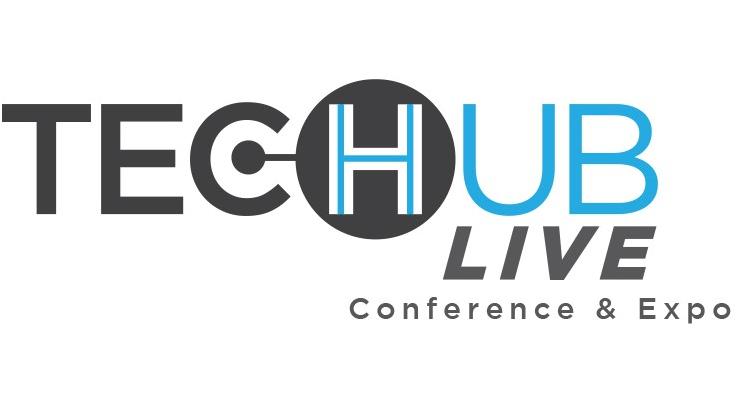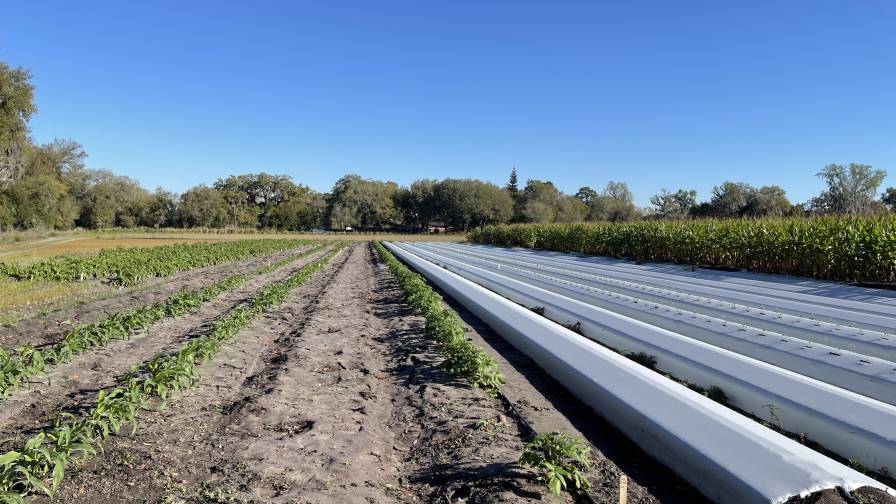5 Questions on Successful Technology Adoption with Kylen Hunt

As farmers continue to search for solutions to help cut costs, increase efficiencies, and become more sustainable and profitable, technology will be at the forefront. Prior to implementing the latest technology, however, farmers need to have the right mindset in place.
Part of that mindset includes knowing your desired outcome and making sure you and your team are on the same page for successful technology on-boarding and adoption.
This critical topic will be addressed next month at the inaugural Tech Hub LIVE Conference and Expo in Des Moines, IA, July 20-21. The focus of Tech Hub LIVE is to bring together industry professionals to learn about the latest products and innovations, connect in-person with leaders who are integrating technology, and take home workable solutions.
Spearheading the discussion on technology adoption during the conference will be Kylen Hunt, CEO of KylenHunt & Co. and co-founder of Transformational Water Solutions. Hunt, a leadership and business coach, has been working with farmers on technology adoption for more than 21 years, and he says to increase yields and profits, as an industry, we must become better at adopting technology.
 We had a chance to chat with Kylen about what is needed for farmers to move toward positive integration of technology and get a peek at what he and a panel of top-notch consultants and farmers will discuss during his session at Tech Hub LIVE.
We had a chance to chat with Kylen about what is needed for farmers to move toward positive integration of technology and get a peek at what he and a panel of top-notch consultants and farmers will discuss during his session at Tech Hub LIVE.
1. Why is it important to get the farm team on board to successfully adopt technology?
Kylen Hunt: When I first started out, the best success I had with precision ag adoption was with small farmers who made the decisions and implemented the solutions personally. In most cases, there were only one or two people on the farm’s internal team, so it was easy for them to master the art of adoption. They knew what they wanted, they knew where they were going, and everybody was on the same page.
As my experience grew and I started working with more large farm organizations, I started to see a few more disconnects. For example, I was working with a fairly large farm, and they were moving into strip-till technology and planned to strip till more than 70% of their row crop acres. The disconnect occurred when one of the three planter operators decided he could drive the tractor with the planter better than the GPS system. As a result, a third of the planted acres were planted off the strip and it was a disaster.
So, I learned that one of the biggest challenges, as well as the most important aspects to precision ag adoption, is making sure everyone is on the same page. That’s when I began managing technology adoption like a coach would manage a football team. If everybody on the football team is not aware of or does not understand the desired outcome of the coach, then it will be impossible to achieve success. The second thing is, even when the team knows the desired outcome but is not working together in unity and alignment, the outcome is still not going to be right.
2. What are you looking forward to addressing at Tech Hub LIVE?
Kylen Hunt: The focus will be on the psychology side of adoption, addressing things like the quality of our thinking, the level of mindset and belief system, and the importance of personal and team leadership. That’s really where I see my area of strength: helping people understand the psychology requirement for high-end adoption.
Our presentation will include a panel discussion with farmers who have adopted technology at a very high level. For example, one panel participant is implementing precise micronutrient management and deficit water management to achieve record-breaking soybean yields.
How has he achieved these results? By challenging his own thinking into crop production and then aligning his technology to deliver up to the level of his thinking. The cool part of all this is the panel participants are either moving themselves or their producers in the same direction. The future will be exciting for each of them.
3. What will the experience of attending your session provide to an attendee?
Kylen Hunt: I want attendees to experience two things. First, to leave this session with a mindset of belief and the confidence that they can identify and truly adopt high-quality technology into their operations or organizations. Second, it’s our hope that they’ll take away a few specific action items that move them from the expensive “let’s try it” implementation model, to a more committed and profitable “adoption” mindset.
4. How do you see Tech Hub LIVE advancing the industry?
Kylen Hunt: In one of our leadership development programs, we train on a transitional mindset model called the 3 C’s of Adoption. They are competition, cooperation, and collaboration.
Competition is where we agree to work against each other and attempt to outperform each other. Cooperation means we agree to work together, but there may be ulterior motives by either or all parties involved. Collaboration occurs when all parties desire to work together for a common cause that results in the success of everyone involved.
Collaboration mindset is the desired outcome I want to see in this industry. I’m hoping and believing that Tech Hub LIVE can and will play a part in doing that.
5. What is one piece of advice on technology adoption you can offer?
Kylen Hunt: Commit to improvement. Our greatest competitor should be ourselves yesterday. If we’re committed every day to improve our thinking, improve our teams, improve the soil, and improve our technology adoption, we’ll improve our results.
And let’s be honest. The results we’re talking about are profits. In today’s world when a producer invests in a tractor, a planter, and a combine, he’s invested a million dollars. To get the return on that investment, everyone that producer works with will have to be better with the technology and the level of thinking they’re bringing to the technology.
I call this a true adoption mindset. It’s a simple adjustment of the personal belief systems we bring to our organizations. With the right belief systems, we’ll bring commitment. With the right commitments, we’ll bring adoption. With the right adoption, we’ll bring profits.





